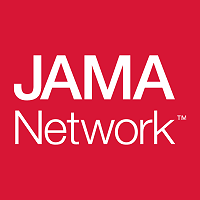Key PointsQuestionDoes intensive glucose control improve functional outcome in patients with hyperglycemic acute ischemic stroke? FindingsThis randomized clinical trial included 1151 adults who received either intensive treatment of hyperglycemia (target blood glucose concentration of 80-130 mg/dL) or standard treatment of hyperglycemia (target glucose concentration of 80-179 mg/dL). The proportion of patients achieving a favorable outcome based on the 90-day modified Rankin Scale score was 20.5% in the intensive treatment group and 21.6% in the standard treatment group, which was not statistically significant. MeaningIntensive compared with standard glucose control did not improve 90-day functional outcomes in patients with acute ischemic stroke and hyperglycemia.ImportanceHyperglycemia during acute ischemic stroke is common and is associated with worse outcomes. The efficacy of intensive treatment of hyperglycemia in this setting remains unknown. ObjectivesTo determine the efficacy of intensive treatment of hyperglycemia during acute ischemic stroke. Design, Setting, and ParticipantsThe Stroke Hyperglycemia Insulin Network Effort (SHINE) randomized clinical trial included adult patients with hyperglycemia (glucose concentration of >110 mg/dL if had diabetes or >= 150 mg/dL if did not have diabetes) and acute ischemic stroke who were enrolled within 12 hours from stroke onset at 63 US sites between April 2012 and August 2018; follow-up ended in November 2018. The trial included 1151 patients who met eligibility criteria. InterventionsPatients were randomized to receive continuous intravenous insulin using a computerized decision support tool (target blood glucose concentration of 80-130 mg/dL [4.4-7.2 mmol/L]; intensive treatment group: n=581) or insulin on a sliding scale that was administered subcutaneously (target blood glucose concentration of 80-179 mg/dL [4.4-9.9 mmol/L]; standard treatment group: n=570) for up to 72 hours. Main Outcomes and MeasuresThe primary efficacy outcome was the proportion of patients with a favorable outcome based on the 90-day modified Rankin Scale score (a global stroke disability scale ranging from 0 [no symptoms or completely recovered] to 6 [death]) that was adjusted for baseline stroke severity. ResultsAmong 1151 patients who were randomized (mean age, 66 years [SD, 13.1 years]; 529 [46%] women, 920 [80%] with diabetes), 1118 (97%) completed the trial. Enrollment was stopped for futility based on prespecified interim analysis criteria. During treatment, the mean blood glucose level was 118 mg/dL (6.6 mmol/L) in the intensive treatment group and 179 mg/dL (9.9 mmol/L) in the standard treatment group. A favorable outcome occurred in 119 of 581 patients (20.5%) in the intensive treatment group and in 123 of 570 patients (21.6%) in the standard treatment group (adjusted relative risk, 0.97 [95% CI, 0.87 to 1.08], P=.55; unadjusted risk difference, -0.83% [95% CI, -5.72% to 4.06%]). Treatment was stopped early for hypoglycemia or other adverse events in 65 of 581 patients (11.2%) in the intensive treatment group and in 18 of 570 patients (3.2%) in the standard treatment group. Severe hypoglycemia occurred only among patients in the intensive treatment group (15/581 [2.6%]; risk difference, 2.58% [95% CI, 1.29% to 3.87%]). Conclusions and RelevanceAmong patients with acute ischemic stroke and hyperglycemia, treatment with intensive vs standard glucose control for up to 72 hours did not result in a significant difference in favorable functional outcome at 90 days. These findings do not support using intensive glucose control in this setting. Trial RegistrationClinicalTrials.gov Identifier: NCT01369069This randomized clinical trial compares the effects of continuous intravenous vs subcutaneous sliding scale insulin for treatment of hyperglycemia during acute ischemic stroke on functional outcome in adult patients in the United States.

Intensive vs Standard Treatment of Hyperglycemia and Functional Outcome in Patients With Acute Ischemic Stroke: The SHINE Randomized Clinical Trial
Review badges
0 pre-pub reviews
0 post-pub reviews





